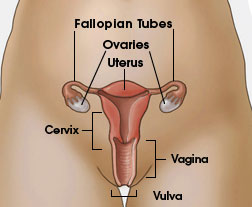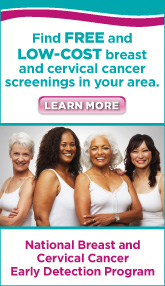Cervical Cancer

Cancer is a disease in which cells in the body grow out of control. Cancer is always named for the part of the body where it starts, even if it spreads to other body parts later.
When cancer starts in the cervix, it is called cervical cancer. The cervix is the lower, narrow end of the uterus. The cervix connects the vagina (birth canal) to the upper part of the uterus. The uterus (or womb) is where a baby grows when a woman is pregnant.
Cervical cancer is highly preventable in most Western countries because screening testsscreening tests and a vaccine to prevent HPV infections are available. When cervical cancer is found early, it is highly treatable and associated with long survival and good quality of life.
Learn more by reading Basic Information About Cervical Cancer, downloading the Inside Knowledge campaign's cervical cancer fact sheet, [PDF-874KB] or listening to the cervical cancer podcast.
Who Gets Cervical Cancer?
All women are at risk for cervical cancer. It occurs most often in women over age 30. Each year, about 12,000 women in the United States get cervical cancer.†
The human papillomavirus (HPV) is the main cause of cervical cancer.cause of cervical cancer. HPV is a common virus that is passed from one person to another during sex. At least half of sexually active people will have HPV at some point in their lives, but few women will get cervical cancer.
†Source: U.S. Cancer Statistics Working Group. United States Cancer Statistics: 1999–2008 Incidence and Mortality Web-based Report. Atlanta (GA): Department of Health and Human Services, Centers for Disease Control and Prevention, and National Cancer Institute; 2012. Available at: http://www.cdc.gov/uscs. (full site)

Contact Us:
- Centers for Disease Control and Prevention
Division of Cancer Prevention and Control
4770 Buford Hwy NE
MS K-64
Atlanta, GA 30341 - 800-CDC-INFO
(800-232-4636)
TTY: (888) 232-6348
8am–8pm ET
Monday–Friday
Closed on Holidays - cdcinfo@cdc.gov


